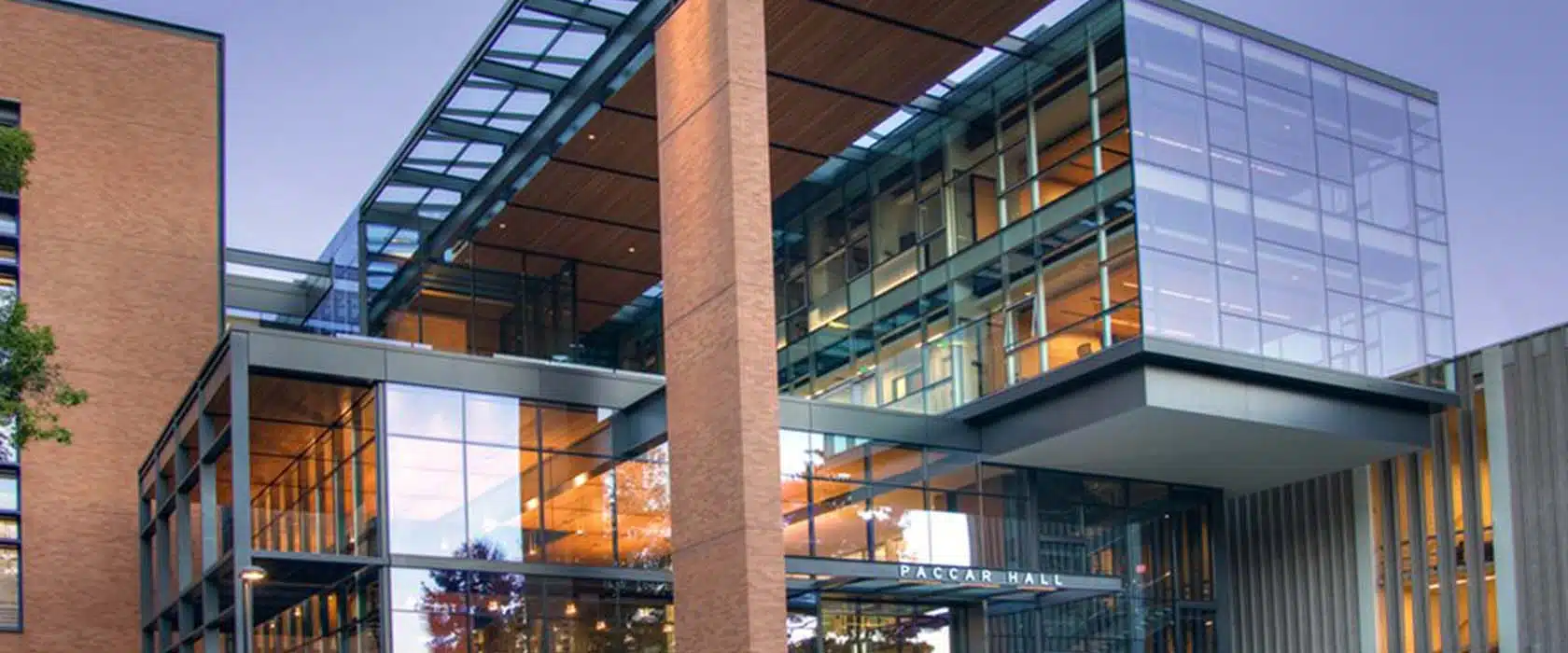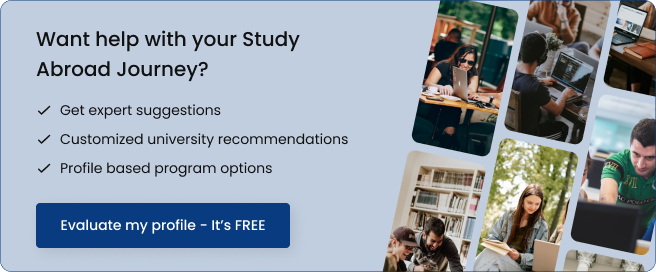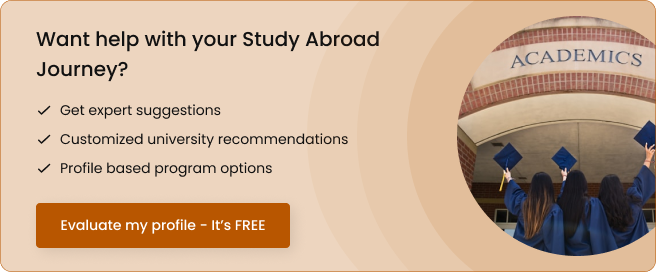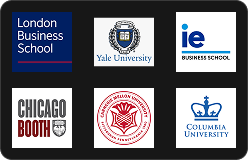
UK's top MBA Programs: A Comprehensive Guide for Aspiring Business Leaders
In the dynamic and competitive world of business, an MBA degree has become increasingly valuable for aspiring business…
Table of Contents

When it comes to top MBA programs in the United States, the University of Washington’s Foster School of Business stands out, especially if you’re eyeing a career in tech, entrepreneurship, or plan to leverage the thriving Seattle business scene. But what makes Foster unique, and is it the right fit for you?
Founded in 1917, the Michael G. Foster School of Business has become a top choice for students looking for an MBA program that balances rigorous academics with real-world business connections. Located in the heart of Seattle, a major tech hub, Foster boasts strong ties to industry giants like Amazon, Microsoft, and Boeing. This strategic location offers students a unique edge, with numerous networking opportunities, internships, and job placements right in their backyard.
Choosing an MBA program can be daunting, especially when you want one that aligns with your career aspirations. The Foster School of Business is renowned for its focus on technology, innovation, and leadership development. If you’re wondering whether this could be your launchpad to a successful career, keep reading as we dive into everything you need to know about the University of Washington Foster MBA.
The University of Washington Foster School of Business offers a variety of MBA program formats designed to fit different professional needs. Whether you’re looking for a full-time immersive experience or need the flexibility of an evening program, Foster has you covered.
What sets the Foster MBA apart? It’s all about experiential learning and leveraging the Seattle business ecosystem:
Wondering what the typical Foster MBA class looks like? Let’s break it down. The school values diversity, bringing together students from various backgrounds to create a collaborative and dynamic learning environment
Criteria | Statistics |
| Class Size | Approximately 120-150 students |
| Gender Diversity | 40% women, 60% men |
| International Students | 35-40% from over 20 countries |
| Average GMAT Score | 700-710 |
| Average GPA | 3.4-3.6 |
| Average Work Experience | 5-6 years |
One of the standout features of the Foster School of Business is its emphasis on collaboration and community. The school fosters (pun intended!) a culture where students support one another, creating an inclusive and welcoming environment.
Applying to the University of Washington Foster School of Business can be competitive, but understanding what the admissions team looks for can give you a strong edge. Let’s break it down.
The current acceptance rate for the Foster MBA program hovers around 30-35%, making it moderately selective compared to other top business schools. Foster’s acceptance rate is lower than many regional programs but slightly more accessible than elite Ivy League business schools.
School | Acceptance Rate |
| University of Washington Foster MBA | 30-35% |
| Stanford Graduate School of Business | 6-7% |
| UCLA Anderson MBA | 20-25% |
| Berkeley Haas MBA | 17-20% |
Foster’s selectivity reflects its strong reputation, especially for candidates with a background or interest in tech and entrepreneurship.
Foster’s admissions team places significant emphasis on leadership potential, a collaborative mindset, and a passion for impact. Here’s what they’re searching for in applicants:
Want to boost your chances of getting accepted? Here are some tips:

The Foster School of Business consistently ranks among the top MBA programs, especially for its strengths in technology, entrepreneurship, and consulting. Let’s see how it fares in major rankings.
Ranking Source | Foster MBA Ranking (2024) |
| Financial Times (FT) | Top 25 Globally |
| QS World University Rankings | Top 30 Worldwide |
| U.S. News & World Report | #22 in the U.S. |
| Forbes MBA Ranking | Top 20 in the U.S. |
Foster’s location in Seattle gives it a unique edge, particularly in the fields of technology and entrepreneurship:
How does Foster stack up against its West Coast peers like Berkeley Haas and UCLA Anderson?
School | Strengths | Ranking |
| Foster (University of Washington) | Technology, Consulting, Community | #22 U.S. (U.S. News) |
| Berkeley Haas | Innovation, Sustainability | Top 10 U.S. |
| UCLA Anderson | Entertainment, Finance | Top 20 U.S. |
Foster’s strong connections to the Seattle business ecosystem make it a standout choice for students interested in technology and innovation. If you’re planning to build a career in the tech industry, Foster offers a compelling mix of academic rigor, industry access, and a collaborative culture.
The University of Washington Foster MBA program offers a comprehensive curriculum designed to equip students with both foundational business knowledge and specialized skills. The program’s structure ensures a balance between core courses, electives, and hands-on learning, giving you the flexibility to tailor your MBA experience based on your career goals.
In the first year, the core curriculum focuses on building essential business skills across a variety of disciplines:
These courses lay the groundwork for advanced topics and prepare students for a range of roles in different industries. Foster emphasizes leadership and strategic thinking, ensuring students can manage complex business problems effectively.
Once you’ve completed the core courses, you’ll have the opportunity to choose from a wide range of electives. Foster offers several areas of specialization to help students deepen their expertise in specific fields.
Specialization | Key Electives |
| Technology Management | Digital Innovation, Product Management, AI in Business |
| Entrepreneurship | New Venture Creation, Venture Capital, Startup Finance |
| Finance | Corporate Finance, Investment Analysis, Mergers & Acquisitions |
| Marketing | Consumer Behavior, Brand Management, Digital Marketing |
These specializations align with Foster’s strengths, particularly in technology and entrepreneurship. You can also customize your curriculum to focus on consulting, operations, or international business, depending on your career aspirations.
One of the most exciting aspects of the Foster MBA program is its emphasis on experiential learning. Foster believes that students learn best by doing, and the program offers a variety of hands-on projects and internships to prepare you for real-world business challenges.
Experiential learning at Foster gives you the chance to apply your classroom knowledge, build your network, and gain practical experience that employers value.
Pursuing an MBA is a significant investment, but the Foster School of Business offers various resources to help make it more affordable. Let’s break down the costs and financial aid options.
Expense | Cost (per year) |
| Tuition (In-State) | $40,000 |
| Tuition (Out-of-State/International) | $55,000 |
| Living Expenses | $20,000 |
| Books & Supplies | $1,500 |
| Health Insurance | $2,500 |
| Total (In-State) | Approximately $64,000 |
| Total (Out-of-State/International) | Approximately $79,000 |
Keep in mind that these costs can vary slightly based on your lifestyle and housing choices.
Foster offers a range of scholarships and fellowships to support students financially. Here are some of the key options:
One of the key factors in choosing an MBA program is the career opportunities it provides post-graduation. The University of Washington Foster MBA program boasts impressive employment outcomes, particularly for students aiming to work in tech, consulting, and finance.
Foster has a strong track record of placing its graduates in top-tier companies. Here are the latest employment statistics for Foster MBA graduates:
Employment Metric | Statistics |
| Employment Rate (3 Months Post-Graduation) | 96% |
| Top Industries | Technology (35%), Consulting (25%), Finance (15%) |
| Average Starting Salary | $130,000 |
| Average Signing Bonus | $30,000 |
Top Hiring Companies: Amazon, Microsoft, Deloitte, PwC, Starbucks, and Google are among the most frequent employers, reflecting the program’s strong ties to the Seattle business ecosystem.
Foster’s MBA program isn’t just about what you learn in the classroom; it’s also about the extensive network and career support you receive. The Foster alumni network is known for being tight-knit, especially in the Pacific Northwest.
The combination of a robust alumni network and dedicated career services ensures that Foster MBA graduates have a strong launchpad for their careers.
Applying to the Foster School of Business requires careful preparation, especially given the competitive nature of the program. Here’s an overview of what you need to know about the application process.
Round | Application Deadline | Decision Notification |
| Round 1 | October | December |
| Round 2 | January | March |
| Round 3 | March | May |
| Round 4 (International Applicants) | April | June |
Required Documents:
The essays are a crucial part of the Foster MBA application, offering you a chance to showcase your personality, goals, and fit for the program. Here’s how to tackle them:
This essay typically asks about your career aspirations and why you believe Foster is the right place to achieve them.
Tips for Success:
Example Opening: "My goal is to transition into a product management role in the tech industry, and I believe the University of Washington Foster MBA program offers the perfect blend of technology and leadership training to help me achieve this."
Foster values collaboration and community, so this essay focuses on your leadership experience and how you plan to contribute to the Foster community.
Tips for Success:
Example Opening: "Throughout my career, I have led diverse teams to solve complex challenges, and I look forward to bringing this collaborative spirit to Foster’s Technology Club and mentoring first-year students."
If you’re invited for an interview, congratulations! This is a great sign that you’re a strong candidate. Here’s what you need to know:
The University of Washington Foster School of Business receives thousands of applications each year, so making yours stand out requires a strategic approach. Foster values a well-rounded applicant, so you’ll need to highlight key qualities beyond just academics.
When reviewing applications, the admissions team at Foster looks for a specific set of characteristics:
The Foster MBA program is known for its collaborative, inclusive, and community-oriented culture. Here’s how to show that you’re a strong fit:
Strong leadership and teamwork skills are crucial for success at Foster. Here are some tips on how to showcase these qualities in your application:

Choosing the right MBA program often comes down to comparing key aspects like curriculum, culture, career outcomes, and location. Here’s how the University of Washington Foster MBA stacks up against other top West Coast business schools.
School | Key Strengths | Specializations |
| Foster (UW) | Technology, Entrepreneurship, Consulting | Tech Management, Entrepreneurship, Finance |
| Berkeley Haas | Innovation, Social Impact | Sustainable Business, Real Estate, Tech Strategy |
| UCLA Anderson | Entertainment, Finance, Marketing | Media & Entertainment, Finance, Marketing |
| USC Marshall | Global Business, Leadership Development | Global Strategy, Data Analytics, Entrepreneurship |
Foster’s curriculum stands out for its focus on technology and entrepreneurship, bolstered by its proximity to major tech companies like Amazon, Microsoft, and Google. If your goal is to break into the tech industry, Foster’s connections and specialized courses can provide a significant advantage.
School | Top Industries | Average Salary | Top Employers |
| Foster (UW) | Technology, Consulting, Finance | $130,000 + $30,000 bonus | Amazon, Microsoft, Deloitte, PwC |
| Berkeley Haas | Tech, Consulting, Social Impact | $140,000 + $35,000 bonus | Google, BCG, Tesla |
| UCLA Anderson | Entertainment, Finance, Marketing | $135,000 + $25,000 bonus | Disney, Goldman Sachs, McKinsey |
| USC Marshall | Consulting, Tech, Real Estate | $125,000 + $30,000 bonus | EY, Accenture, JP Morgan |
Foster’s strong connections to Seattle’s tech giants make it an ideal choice if you’re aiming for roles in product management, tech consulting, or business development. Berkeley Haas might be a better fit if you’re interested in sustainability or social impact, while UCLA Anderson is the go-to for entertainment and finance careers.
School | Alumni Strength | Regional Influence |
| Foster (UW) | Strong tech and consulting network | High influence in Seattle |
| Berkeley Haas | Extensive network in innovation hubs | High influence in Silicon Valley |
| UCLA Anderson | Strong connections in entertainment | High influence in Los Angeles |
| USC Marshall | Powerful global business network | High influence in Southern California |
If you plan to stay on the West Coast, Foster’s strong ties to the Seattle business ecosystem could give you a major advantage, especially if you’re targeting roles in technology. On the other hand, if you’re drawn to the entertainment industry, UCLA Anderson offers unparalleled access to Hollywood.
Foster may be the right fit for you if:
Foster may not be the best fit if:
Investing in an MBA program is a big decision, and evaluating the return on investment (ROI) is crucial. The University of Washington Foster MBA offers strong ROI, particularly for those interested in tech, consulting, and entrepreneurship.
Foster’s graduates consistently land high-paying roles, especially in technology and consulting. Here’s a look at the financial outcomes:
Metric | Statistics |
| Average Starting Salary | $130,000 |
| Average Signing Bonus | $30,000 |
| Salary Increase Post-MBA | 90% (compared to pre-MBA salary) |
| Employment Rate (3 Months Post-Graduation) | 96% |
Foster’s emphasis on experiential learning, leadership development, and strong industry connections contributes to these impressive employment outcomes. Graduates typically see a significant salary boost and quick return on their MBA investment, often recouping the full cost within a few years.
One of the key drivers of ROI is Foster’s powerful alumni network, especially in Seattle’s thriving business community. The network is strong in sectors like technology, consulting, and finance, providing graduates with access to mentorship, job opportunities, and career growth.
Foster’s location in Seattle offers a unique advantage. The city is home to some of the world’s largest tech companies, including Amazon, Microsoft, and Boeing. Here’s how Seattle’s booming tech ecosystem contributes to the high ROI of a Foster MBA:
If you’re aiming for a career in tech or entrepreneurship, the ROI of a Foster MBA can be significantly higher due to the direct access to Seattle’s job market and the strong demand for MBA talent in the region.
The Foster School of Business prides itself on its collaborative culture, commitment to community impact, and emphasis on real-world experience. Here’s what sets the Foster MBA apart:
Unlike some competitive MBA programs, Foster fosters (no pun intended!) a culture of collaboration and support. The school emphasizes teamwork and values students who can work well in a group setting.
Foster’s location in Seattle provides unparalleled access to the city’s vibrant tech and startup scene. Here are some unique opportunities available to Foster MBA students:
Example Opportunities:
The Foster School of Business offers several specialized programs that enhance the MBA experience and help students gain a competitive edge:
These unique programs and centers allow Foster MBA students to tailor their experience and gain practical skills that are highly valued by employers.
The University of Washington Foster MBA program has a competitive admissions process, so it’s essential to start preparing early. Here’s a suggested timeline and some key milestones to help you build a strong application.
Milestone | Recommended Timeline |
| Research the Program | 12-18 months before application |
| GMAT/GRE Preparation | 10-12 months before application |
| Connect with Alumni/Attend Events | 8-10 months before application |
| Begin Working on Essays | 6-8 months before application |
| Gather Recommendation Letters | 4-6 months before application |
| Submit Application | Follow the deadline for your chosen round (Round 1, 2, 3, or 4) |
| Prepare for the Interview | After application submission (by invitation) |
Tips for Each Milestone:
One of the best ways to strengthen your application and gain a better understanding of the program is by connecting with Foster alumni and current students. Here’s why it’s important and how you can do it effectively:
How to Connect:

To help you navigate the application process and learn more about the Foster MBA program, here’s a list of essential resources:
Choosing the right MBA program is a critical decision that can shape your career trajectory for years to come. The University of Washington Foster MBA stands out as a top choice, particularly for those looking to immerse themselves in a community that values collaboration, innovation, and real-world experience.
With its strategic location in Seattle, the Foster MBA offers unmatched access to leading tech firms like Amazon, Microsoft, and Boeing, making it a perfect fit for students interested in technology and entrepreneurship. The program’s emphasis on experiential learning, strong alumni network, and supportive culture also sets it apart, providing students with the tools they need to succeed in a competitive job market.
Don’t wait—start your journey today! Visit the Foster MBA Application Portal to learn more about the program, upcoming application deadlines, and resources to help you craft a compelling application. If you have any questions, reach out to the admissions team or connect with a current student to gain deeper insights.
